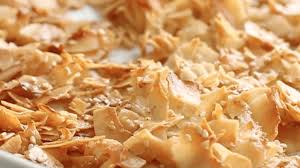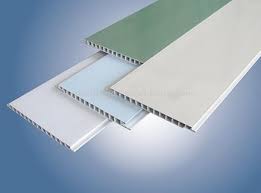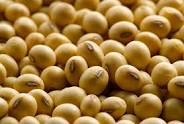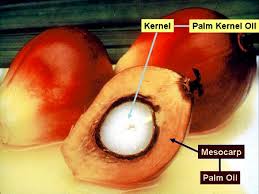Coconut Chips Production in Nigeria; The Feasibility Report.

The coconut tree (Cocos nucifera) is a member of the family Arecaceae (palm family) and the only species of the genus Cocos. The term coconut can refer to the whole coconut palm or the seed, or the fruit, which, botanically, is a drupe, not a nut.
Coconuts are known for their versatility ranging from food to cosmetics. They form a regular part of the diets of many people in the tropics and subtropics.
Coconuts are distinct from other fruits for their endosperm containing a large quantity of water (also called “milk”), and when immature, may be harvested for the potable coconut water.
When mature, they can be used as seed nuts or processed for oil, charcoal from the hard shell, and coir from the fibrous husk. When dried, the coconut flesh is called copra. The oil and milk derived from it are commonly used in cooking and frying, as well as in soaps and cosmetics.
The husks and leaves can be used as material to make a variety of products for furnishing and decorating.
Coconut is cultivated in about more than ninety (90) countries all over the world and a total of about sixty-four billion, three hundred million (64,300,000,000) nuts were produced as of 2013.
These nuts are mostly cultivated by the coastal and nearby region throughout the whole world and the demands are on the increase.
In Nigeria, the leading producing states are Niger, Kano, Jigawa, Zamfara, Kebbi, Sokoto, Katsina, Kaduna, Adamawa, Yobe, Borno, Taraba, Plateau, Nasarawa, Bauchi, Lagos and Ogun states.
Demand for coconuts has grown upwards of five hundred percent (500%) in the last decade. This is because coconut-based derivatives, such as soaps, virgin coconut oil, health products and coconut water, have all seen large spikes in demand, so much so that producers may not be able to keep up.
Because the demands for coconuts are not being met, European markets have taken a number of steps to curb their demand. Specifically, the European Union has proposed levies on vegetable imports to the EU, they have promoted the use of alternative vegetable oils, such as palm, canola and soya, and they have put stricter aflatoxin regulations into place within the copra production market. With the measures being taken to curb runaway demand, suppliers are still making a pretty penny.
Indeed, numerous foreign firms are looking to invest in the supply side of coconut production, especially in places such as Sri Lanka’s ultra-productive ‘Coconut Triangle’ region.
Nigeria currently can only boast of two hundred and sixty-five thousand (265,000) metric tonnes of coconut production in eightenth (18th) position of the world coconut production country index, a country that is bestowed with arable rain forest zone fertile for a crop that is non-indigenous to it. Thus, the nation can compete favorably in the coconut market.
Coconuts are often eaten raw, but can also be found in many prepared foods (especially desserts) and drinks. Many beneficial health effects are thought to result from eating coconut.
Coconut is one of the delicious fruits. It contains vitamins, minerals, enzyme, fruit juice etc. Coconut can be preserved in the form of coconut chips by drying it. In normal drying apples pieces changed its colour to brown. Microwave vacuum drying may be used to prepare coconut chips with a puffy and crispy texture.
They may be seasoned with cinnamon and sweetened with confectioners sugar.There is very good market of coconut chips. It can be sealed in the aluminium foil. Coconut chips are used as snack food. It can be used as health care food, vitamins, minerals and substitute product.
This report seeks to examine the financial viability or otherwise of producing coconut chips from coconut in Nigeria.
A whole coconut consists of fifty percent (50%) husk, fifteen percent (15%) shell, twenty-five percent (25%) meat and ten percent (10%) water. The coconut shells contain thirty-four percent (34%) cellulose, thirty-six percent (36%) Lignin, twenty-nine percent (29%) pentosans and one percent (1%) Ash.
Coconut meat is the rich white lining that is contained within the shell of a coconut. Coconut meat can be juicy and tender, or slightly thick and crunchy, to tough and fibrous depending on how long the kernel has been stored.
Coconut chips, as any other chips, are a ready to eat snack food. Dehydrated matured coconut kernel slicers are dipped in osmotic medium like sugar syrup is called coconut chips.
Table of Contents
EXECUTIVE SUMMARY 1.0 Business Overview 1.1 Description of the Business 1.2 Vision and Mission Statement 1.3 Business Objective 1.4 Value Proposition 1.5 Critical Success Factor of the Business 1.6 Current Status of Business 1.7 Description of the Business Industry 1.8 Contribution to Local and National Economy 2. Marketing Plan 2.1 Description of product 2.2 Product Packaging and delivery 2.3 The Opportunity 2.4 Pricing Strategy 2.5 Target Market 2.6 Distribution and Delivery Strategy 2.7 Promotional Strategy 2.8 Competition 3. Production Plan 3.1 Description of the Location 3.2 Raw Materials 3.3 Production Equipment 3.4 Production Process 3.5 Production Cost 3.6 Stock Control Process 3.7 Pre-Operating activities and expenses 3.7.1 Operating Activities and Expenses 3.8 Project Implementation Schedule 4.0 Organizational and Management Plan 4.1 Ownership of the business 4.2 Profile of the promoters 4.3 Key Management Staff 4.3.2 Management Support Units 4.4 Details of salary schedule 5. Financial Plan 5.1 Financial Assumption 5.2 Start up Capital Estimation 5.3 Source of Capital 5.4 Security of Loan 5.5 Loan Repayment Plan 5.6 Profit and Loss Analysis 5.7 Cashflow Analysis 5.8 Viability Analysis 6.0 Business Risk and mitigation factor 6.1 Business Risks 6.2 SWOT Analysis
Project Specification:
Additional Info
Get this Report
Direct bank transfer
To order the report, Please do pay the sum of ₦150,000 into
Account Name : Foraminifera Market Research Ltd
Account Number : 274 20 569 37
Account Name : Foraminifera Market Research Ltd
Account Number : 101 76 603 95
Account Name : Foraminifera Ventures
Account Number : 011 66 066 32
Make your payment directly into our bank account. Please use your Order ID as the payment reference. Your order will not be shipped until the funds have cleared in our account.
Instructions
After payment call us on 01 -29 52 413 / 08033782777 or email us at foraminiferamarketresearch@yahoo.com with the payment details. After payment confirmation, the soft copy of the report would be sent to you within 24 hours.



